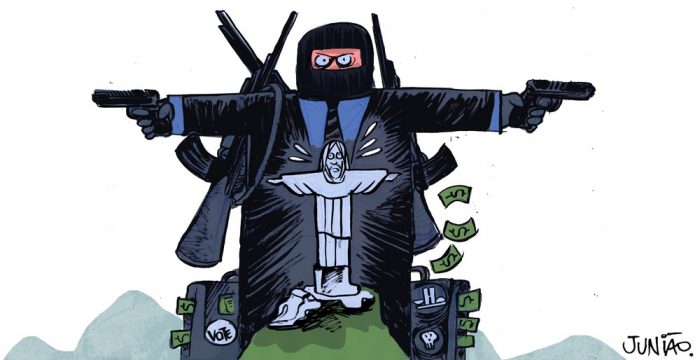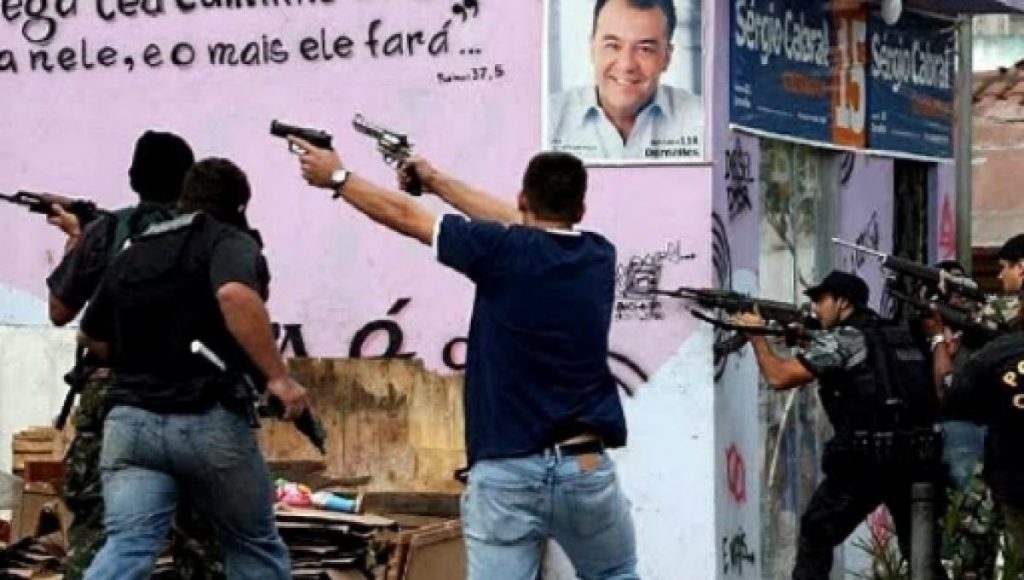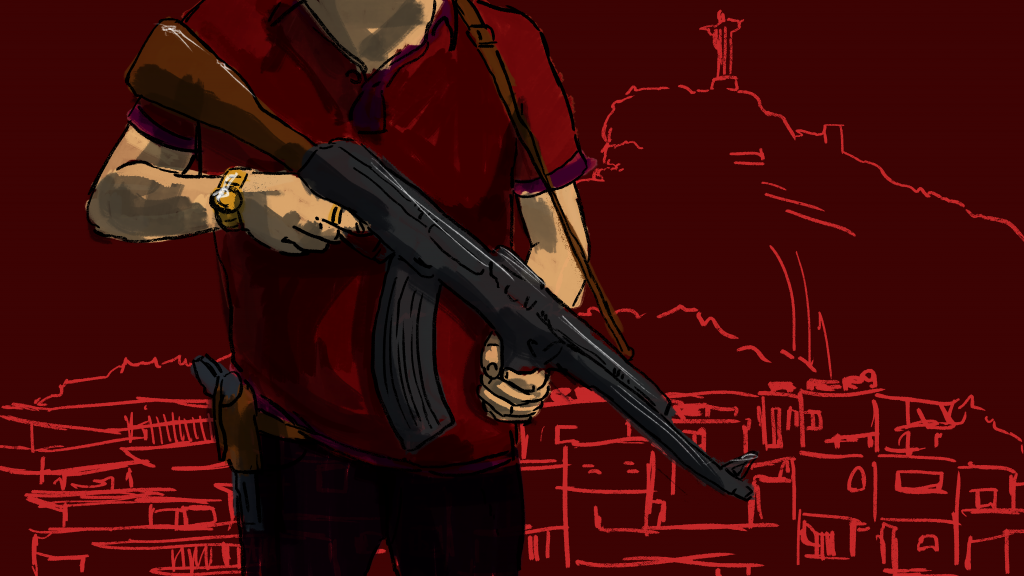RIO DE JANEIRO, BRAZIL – The largest militia in the country has the support of security agents and members infiltrated into politics, writes Brazilian media outlet UOL in its latest report.
With “uniformed partners,” the former “Justice League,” now “The Firm,” has even articulated operations to expel drug traffickers from their areas of dominance in the cities of the Baixada Fluminense (a suburban belt west and north of Rio), according to the MP-RJ (Rio de Janeiro’s Prosecutor’s Office).

A survey conducted by UOL discloses details about the actions of five kingpins infiltrated into public security and with connections to local politics. According to investigations conducted by Rio de Janeiro’s Civil Police and the MP-RJ, these sectors are interconnected with the militia that has expanded from Rio’s west zone to the region’s neighboring municipalities in the past three years.
Regarding the expansion of paramilitaries into the Baixada Fluminense, UOL shows how the initiation ritual of the criminal organization works, which includes murder, dismemberment, and concealment of bodies in clandestine cemeteries.
Data exclusively obtained from the MP-RJ shows that 319 people were denounced by the GAECO (Special Action Group to Fight Organized Crime) last year for militia-related crimes. Among them, 31 were police or ex-police officers.
The MP-RJ (Rio de Janeiro State Police) also recorded significant numbers in its internal bulletins relating active duty members to the illicit actions of paramilitaries. In 2019, at least 18 police officers were submitted to the corporation’s Disciplinary Council for charges involving their actions with the militia in the metropolitan region of Rio de Janeiro.

Ten of them were investigated for suspected links to groups in the municipalities of Queimados and Nova Iguaçu, west of Rio.
For authorities and experts, the figures are based on a worrying finding: in an area with fewer police officers, the scenario of impunity boosts the participation of officials and even politicians in the militia.
“The militia is the most difficult criminal organization to fight because of its closeness to public power. In administrative positions, policemen linked to organized crime seek privileged information”.
An author of studies on the advancement of militias in Rio de Janeiro, sociologist Ignácio Cano, believes that the link between militia and politics can also be related to the actions of extermination groups in the Baixada.
“The expansion of the militia into the Baixada is favorable because the region is in a neglected territory, with low policing and far from the center of power in Rio. There has been infiltration of extermination groups in politics for decades and no one has ever mobilized against it,” he analyzes.

A retired captain of BOPE, the elite troop of the PM-RJ, anthropologist Paulo Storani believes that the combination of police training and participation in politics can be explosive in areas where paramilitary groups have a strong presence.
“These criminals make themselves known, mobilize public opinion and end up elected. They are people who know how the state works and use their influence to prevent investigations”.
The MP-RJ points out that Lieutenant Celso Humberto Almeida da Silva, arrested in July 2017, used the structure of the 39th BPM to prevent the approach of traffickers in his area of operation, in Belford Roxo (RJ).
Telephone wiretaps authorized by courts that year unveiled a routine of loan sharking and collections made to merchants at the behest of the 57-year-old state police officer in the communities of Nova Aurora, Bela Vista, Shangri-lá and Terra Branca. Based on the wire taps, 24 suspected members of the group were reported to the courts.

